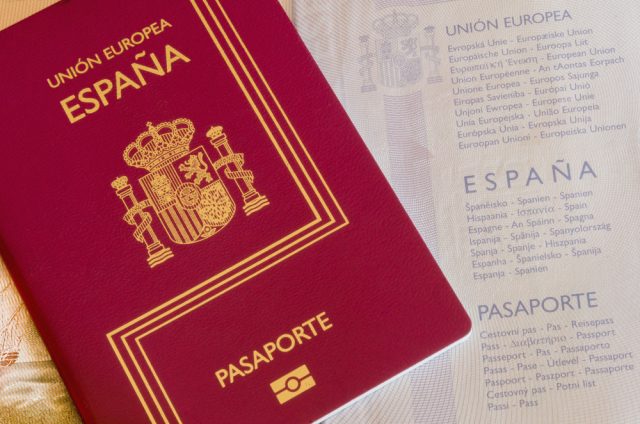
Last October, the Spanish Congress of Deputies approved the Law of Democratic Memory. A norm that takes its predecessor, the Law of Historical Memory, promoted in 2007 by the socialist Rodríguez Zapatero, to a higher level.
The new Law of Democratic Memory, whose content reveals an ideological and revisionist spirit of the past, brings with it a consequence that has gone unnoticed. In its eighth additional provision, relating to the acquisition of Spanish nationality, the law contemplates up to three scenarios for claiming Spanish nationality.
In the first place, those born abroad with a father or mother, grandfather or grandmother, who were originally Spanish, and who, as a consequence of having fled for diferent reasons (either politics, ideology, religion or new ones such as sexual orientation or identity) lost or renounced their Spanish nationality, will be able to do so. In other words, children and grandchildren of emigrants. Nothing new beyond the inclusion, among the reasons to be put forward, of the identity spirt of the times.
Mass nationalization
However, this law includes two more assumptions. On the one hand, and although it had not been included in the original draft, those born abroad whose mothers lost their nationality because of marrying foreigners before the current Constitution entered into force. And, in third place, those whose parents were recognized as Spaniards by virtue of the right of option.
This last assumption opens the door to an immense casuistry of potential nationalization processes. Not only the grandchildren of the emigrants will be able to opt for the Spanish nationality, but the limit is lowered up to the great-great-grandchildren. That is, up to the fourth generation.
Administrative complications
The wording of the law is so poor that the competent authority has not included any instructions to serve as a guide to understand which documents will be required to obtain the nationality. This, far from being trivial, has a major relevance, since the truth is that there is no official and exhaustive registry of the total number of emigrants, nor their names.
In the absence of an official list with names and surnames of the Spaniards who emigrated, it would have been appropriate for the Government to draw up detailed requirements and try to avoid bureaucratic and administrative chaos. Law firms are encountering a huge number of applications and are blindly dealing with them, using the requirements of the 2007 law as a reference to guide their clients. And consular offices are also overwhelmed and helpless in the face of an avalanche of requests for information.
Elections, the real interest
The arbitrariness and speed with which it has been approved can be understood by the date marked on the executive’s calendar: the municipal and general elections of 2023.
The municipal elections will take place in Spain in May of next year. And the general elections, although there is no confirmed date, cannot be called beyond the end of 2023.
In addition, the Government has ensured that all descendants of Spaniards who acquire nationality through the Law of Democratic Memory will have access to the range of public aid and benefits, including social housing if they meet the requirements. The Minimum Vital Income, the subsidy for those over 55 years of age and access to non-contributory pensions are also among the attractions that the Government has put on the table for the newly naturalized citizens less than a year before the new electoral cycle.
The legal trap of the Law of Democratic Memory will open the door to a massive wave of requests for nationality. In such a delicate economic context at world level and with an inflation that especially affects fragile economies such as those of Latin America, the experts foresee that Spain will suffer an avalanche of bureaucratically unbearable petitions. But that does not worry the executive, the important thing is the votes.



 Subscribe
Subscribe